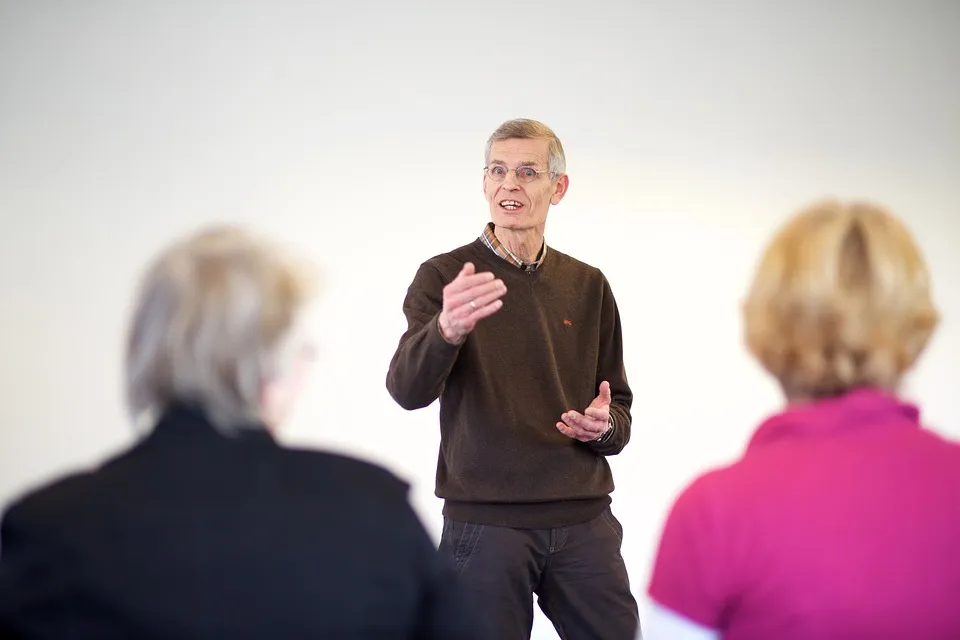
Source
Hace días tuve un encuentro casual con una persona dedicada al mundo de las ventas, y que conocí en una de mis tantas conferencias. He aquí una dramatización del diálogo sostenido:
- ¡Hola, ¿cómo está?!
- Como esta coach, como me la va…
- Bastante bien, dedicado full a la escritura y a ti como te va con las ventas, ¿has estudiado algo más sobre las neurociencias?
- Ahora que lo mencionas, si he visto unos videos en tik tok, y sigo a unos influencers, fíjese que el otro día estaba en la oficina y vi que una de las corredoras estaba algo triste, como que si tuviera un peso… y me dije es el momento de practicar, y me puse hacerle unas preguntas y mire profe, la mujer inmediatamente se puso a llorar, me asusté un poco, pero me dije a mí misma, qué buena soy…
- Guaoo y que hiciste que tuviera ese quiebre emocional, que hiciste… ¿Cómo manejaste esa situación?
- Bueno, le dije que nos veíamos después porque me llamo un cliente y tuve que irme a mostrar una propiedad.
De este real y sorprendente diálogo han transcurrido ya unos días, sin embargo, la reflexión y la frustración aún no se apartan de mi mente. El hecho que en las redes sociales abunden muchísimas publicaciones sobre el coaching, la PNL y otras neurociencias, eso no significa que con tan solo ver unos minutos ya usted es un experto en coaching. No, el trabajar con las emociones de los demás es algo muy serio.
Una de mis prédicas en los últimos años se ha centrado en decirle al mundo que coaching es una magnífica técnica, que ayuda a sacar las potencialidades de las personas, a ver un camino donde no lo hay, a sentir la esperanza de un futuro mejor, escuchando esa voz interna que te dice si se puede. El coaching demanda de horas de estudio, de dedicación a comprender la mente y el comportamiento humano. Esto ya por si solo es extremadamente complejo que para mi juicio ni siquiera en 180 horas de formación una persona se convierte en un buen coach, sino que como lo establecen muchas asociaciones de coaching de Europa se requieren de más de 100 sesiones de coaching para poder considerarse como tal.

Pixabay
El uso de las redes sociales y las técnicas de Marketing para lograr notoriedad y por su puesto, clientes y seguidores ha llevado a muchos a presentar de manera simplista y sin esencia a las neurociencias. Es cierto que cada quien busca ganarse el pan de la forma como lo considere, pero hay ciertos límites que la ética y la moral imponen. Así como un vendedor no debe andar ofreciendo bienes con publicidad engañosa o así como cuida que los documentos de la propiedad ofertada estén en perfecto orden legal, de esa misma manera alguien que pretenda erguirse como coach, terapeuta o mentor no debe andar por la vía manejando irresponsablemente las emociones de las personas.
El pensar que el mercado irá expulsando a aquellos que aplicando el intrusismo buscan pescar clientes mal utilizando sus conocimientos es tan bien una forma simplista de enfrentar a este problema. Los coach con sólida formación y además que han cambiado su estilo de vida dedicándose en cuerpo y alma a la mejora de la conducta humana, debemos rechazar categóricamente a este tipo de conducta. Debe llegar el momento que se pueda establecer normas y leyes que regulen esta actividad. Mientras esto llega, hay que tener el valor y la hidalguía para desenmascarar a estos falso profeta.

Pixabay
También las personas deben comprender que es de humanos pedir ayuda, que grandes líderes y ahora grandes deportistas manifiestan públicamente, como sus vidas han cambiado desde que asisten o reciben terapias. Ya sea usted un vendedor, ama de casa, trabajadores petroleros, lo que sea, es mejor pedir ayuda y contratar los servicios de un profesional de reconocida trayectoria a andar por la calle con los sentimientos a flor de piel. Evítese el riesgo de caer en manos de manipuladores que han aprendido a detectar esas sensibilidades y hacen las preguntas que activan sus disparadores emocionales tan solo para hacerlos tener un quiebre y entonces decir, ¡La hice llorar qué buena soy!


Source
A few days ago I had a chance encounter with a person dedicated to the world of sales, whom I met at one of my many conferences. Here is a dramatization of the dialogue we had:
- Hello, how are you?
- How is your coach, how am I doing...?
- Quite well, dedicated full time to writing and how are you doing with sales, have you studied anything else about neurosciences?
- Now that you mention it, yes I have seen some videos on tik tok, and I follow some influencers, notice that the other day I was in the office and I saw that one of the runners was a little sad, as if she had a weight ... and I said to myself it's time to practice, and I started to ask her some questions and look teach, the woman immediately started to cry, I was a little scared, but I said to myself, how good I am ....
- Wow, and what did you do to make her have that emotional breakdown, what did you do... How did you handle that situation?
- Well, I told her I would see her later because a client called me and I had to leave to show a property.
A few days have passed since this real and surprising dialogue, but the reflection and frustration still do not leave my mind. The fact that social networks abound with many publications about coaching, NLP and other neurosciences does not mean that just by watching a few minutes you are an expert in coaching. No, working with the emotions of others is very serious.
One of my preaching in recent years has focused on telling the world that coaching is a great technique that helps to bring out the potential of people, to see a path where there is none, to feel the hope of a better future, listening to that inner voice that tells you if you can. Coaching demands hours of study, of dedication to understanding the mind and human behavior. This alone is extremely complex and in my opinion not even in 180 hours of training a person becomes a good coach, but as stated by many coaching associations in Europe, more than 100 coaching sessions are required to be considered as such.

Pixabay
The use of social networks and marketing techniques to achieve notoriety and, of course, customers and followers has led many to present neurosciences in a simplistic and insubstantial way. It is true that everyone seeks to make a living in the way they see fit, but there are certain limits imposed by ethics and morals. Just as a salesman should not go around offering goods with misleading advertising or just as he takes care that the documents of the property offered are in perfect legal order, in the same way someone who pretends to stand as a coach, therapist or mentor should not go around irresponsibly handling people's emotions.
To think that the market will expel those who, by applying intrusiveness, seek to catch clients by misusing their knowledge is a simplistic way of facing this problem. Coaches with solid training and who have changed their lifestyle by dedicating themselves body and soul to the improvement of human behavior, must categorically reject this type of behavior. The time must come when rules and laws can be established to regulate this activity. While this comes, we must have the courage and nobility to unmask these false prophets.

Pixabay
People should also understand that it is human to ask for help, that great leaders and now great athletes publicly manifest how their lives have changed since they attend or receive therapies. Whether you are a salesman, housewife, oil workers, whatever, it is better to ask for help and hire the services of a professional of recognized trajectory than to walk the streets with your feelings on the surface. Avoid the risk of falling into the hands of manipulators who have learned to detect these sensitivities and ask questions that activate their emotional triggers just to make them have a breakdown and then say, I made her cry how good I am!


